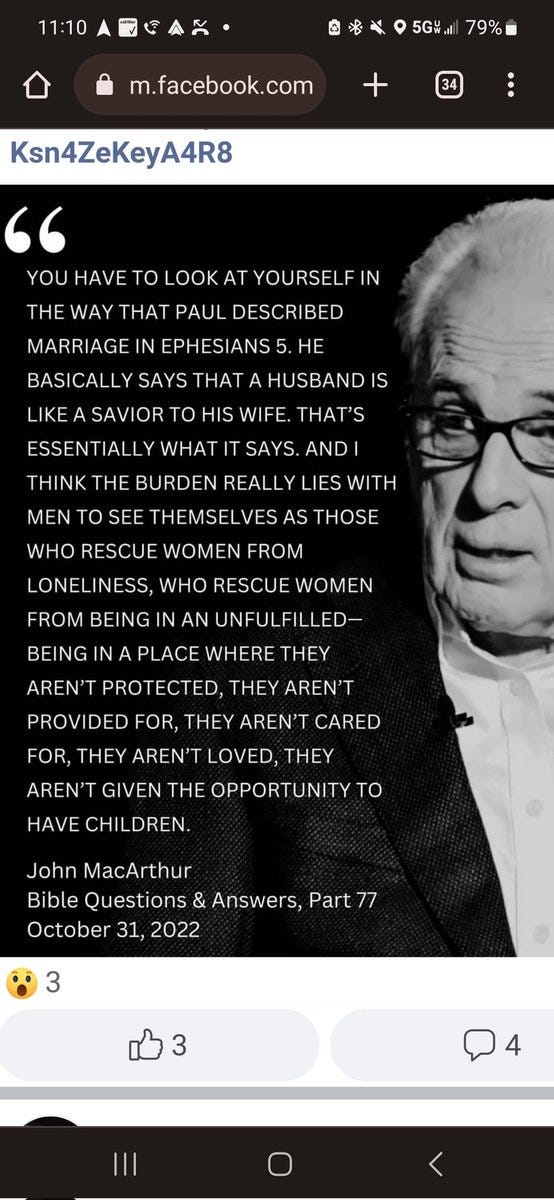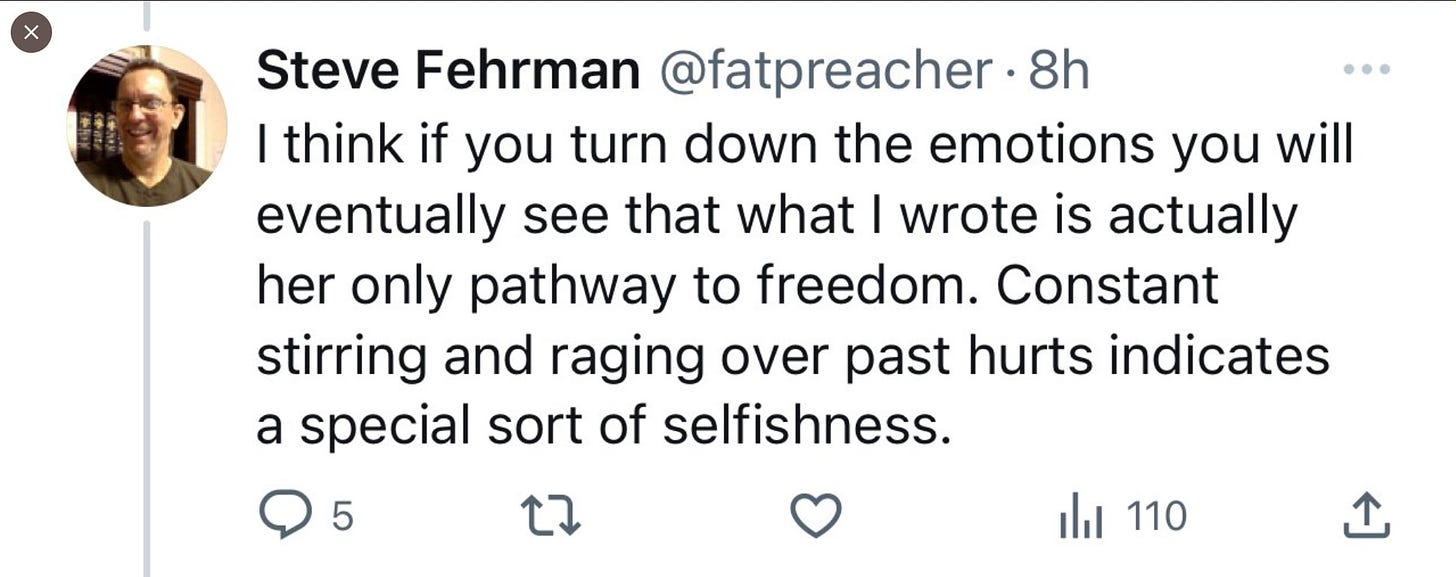Enraged Pastors Defending David, Attack Sex Abuse Survivors Online
When, in the name of Bathsheba, will it end?
The internet has offered many things: memes, stupid cat videos… a perennial debate over whether Bathsheba enticed King David into sex or if she was raped.
Your standard social media blend may be slightly different than mine. Crap, I need some more cat vids right now, because it’s the David Defense everywhere I look right now.
Every year or so, often once a separate controversy grows too intolerable on Christian Twitter (or a woman of note is receiving too much positive attention), this debate seems to bubble up to overwhelm it for attention, and then two factions rapidly split. For those of you who don’t frequently reread the Bible, I’ll include the pertinent passage concerning David and Bathsheba below.
In recent years, one of the important points from this story that gets highlighted is that King David was just that, the king, when he sent his messengers for Bathsheba. He saw a woman he wanted and sent his staff to fetch her for him. His power was absolute, and as such, there was no opportunity for consent. (Recall Bathsheba was married within this story.) David learns this, doesn’t care, and claims her body. She is not asked. She is delivered.
Many survivors, themselves also victim to people in positions of power who wielded that power to force them into sex acts they otherwise would never have engaged in see themselves in this story. They call it as they see it: Bathsheba was raped.
Then as they voice such in online spaces, many pastors (i.e., men in roles of similar positions of authority) deny this interpretation and for good measure, put abuse survivors on blast.
It’s alarming how discussion of abuse of power so often provokes verbal abuse from a small but loud segment of clergy.
Christa Brown, whom I profiled in January for VICE and who will appear in Disobedient Women, tweeted this week about how in her childhood church, she and her fellow congregants were taught Bathsheba was at fault, that Bathsheba was a temptress. “So, when pastor raped me as a kid, it was I who was labeled a temptress. I who was at fault. Bad theology begets abuse.”
Steve Fehrman, a Southern Baptist pastor, rather than responding with grace or empathy, tweeted: “Why don’t you get a life and stop with the ongoing obnoxious droning on about you and your abuse.”
If you don’t know Brown’s story, read it. Brown has dedicated over a decade and a half to exposing abuse within the Southern Baptist Convention—at great personal cost. As many survivors of abuse within large institutions have told me, without constant pressure, promised reforms never come to fruition. That’s why they keep at it, keep advocating. The drumbeat is as necessary as a screaming conscience.
For years, Brown reported public records of abuse cases on her blog Stop Baptist Predators, trying to get SBC to acknowledge the scope of abuse. As Liam Adams reported this week for The Tennessean, another generation is now taking to TikTok to report out similar frustrations over inaction with layers of church leadership.
This is not “droning on.”
It is a crying out for justice.
It is possible that Fehrman is unaware that many survivors are motivated by an urge to protect future generations from abuse—simply moving on is not an option. It appears he felt he was giving sage wisdom on how to bottle up feelings (not understanding complex trauma). Brown mentioned to me how she’s endlessly dealt with comments like this, and on her blog, it was up to her to deal with and delete them on her own.
At least on Twitter, there’s a community, others who will speak up on her behalf, people who are able to see the toll.
Fehrman suggested Brown tone down the emotions; the alternative was selfish, he told her. He was unable to see the sacrifice in her disclosures.
I’ve been trying to remember what kicked off the latest spat over David. It feels like it’s been going on for a couple of weeks—and perhaps that means it’s been a successful belligerence, that it’s wiped from my mind whatever other thing was going on prior.
Beth Moore successfully launched her memoir, and it seemed to profoundly speak to Christian women, particularly survivors of abuse… Maybe that was it?
I do know in the meantime, there was the blow up over Joshua Butler’s book excerpt published by The Gospel Coalition and Rachael Denhollander was tweeting up a storm about John MacArthur’s theology of husbands being saviors to their wives. MacArthur’s name was also recently in the news as multiple women at his church described being counseled to stay and submit to abusive husbands (or face church discipline).


Time for a distracting fight about David and a good opportunity to attack women who defend Bathsheba, it seems.
Soon, somehow Twitter was suddenly ablaze about David and Bathsheba, and it was all Denhollander’s fault, you’d think—thanks to comments she made years prior on the Bible passage.
Some chimed in claiming Denhollander’s rape interpretation of the David and Bathsheba passage depends upon “Marxist power dynamics.” (Actually, it was Owen Strachan, a theology professor and evident fan of MacArthur who had just gone to see him speak; Strachan also has announced preorders for his book The War on Men: Why Society Hates Them and Why We Need Them.)
New waves of online attacks continued against Denhollander. And so it goes.
I wonder so often how these advocates stay, why they stay engaged, how they have not blocked half the internet.
I see them speaking up against abuse, against those who normalize or cover up abuse, even against the old, old stories that make it hard for the next girl to understand when it’s happening to her.
Among the threads Brown shared to contextualize her thoughts was one from Rabbi Mike Harvey, author of Let’s Talk: A Rabbi Speaks to Christians. Rabbi Mike summarized the David and Bathsheba (Bat Sheva) story.
The rabbi notes how some commentators frame Bathsheba’s later efforts to protect her resulting son’s interests (succession to the throne) as evidence of her guile, but argues “I find this view absurd and insulting… What a woman chooses to do regarding her son (from a rape) has nothing to do with her passive or active response to the rape itself, and to insinuate that during the rape, Bat Sheva was thinking she could gain something from this is also disgusting and misogynistic.”
Keep reading with a 7-day free trial
Subscribe to In Polite Company to keep reading this post and get 7 days of free access to the full post archives.







